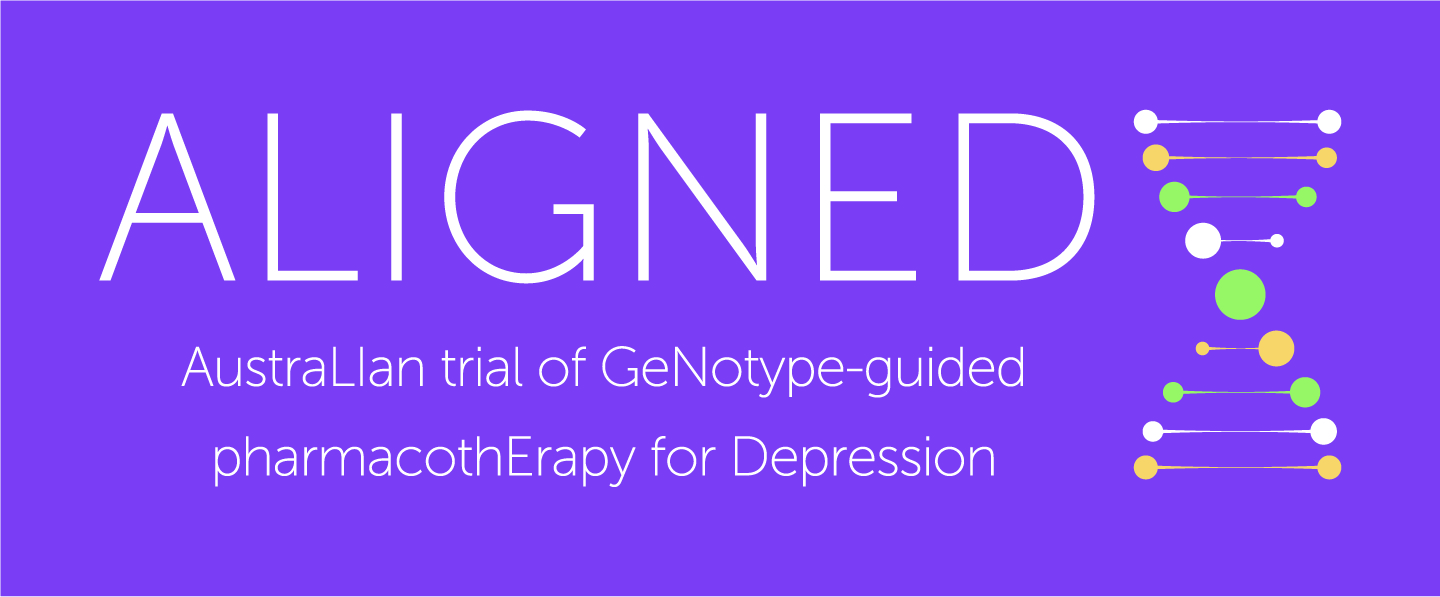
The AustraLIan trial of GeNotype-guided pharmacothErapy for Depression (ALIGNED)
Background
Depression is a common form of mental distress that affects 1 in 7 Australians in their lifetime. People who are depressed not only feel depressed and sad, but often find they sleep poorly, experience a change in appetite, have low energy, poor concentration and have lowered self-esteem. Sometimes, they might think of harming themselves. Often, they find it hard to enjoy life or be productive.
Aim
This project seeks to investigate how pharmacogenomics can help to find the right antidepressant medication for people with depression.
Method
This is an investigator-initiated, randomised-controlled trial of pharmacogenomics-guided therapy versus standard care for people with moderate to severe depression.
Study participants are randomised to either the pharmacogenomics-guided intervention arm or a standard care (control) arm. The prescribing doctors of all participants are provided with a treatment guide to inform prescription of antidepressant therapy.
Potential Impact
Pharmacogenomics is a new, simple genetic test which can determine the way a person’s body will respond to medication. Pharmacogenomics-guided therapy has the potential to offer a more effective precision approach to treatment selection. This may improve the likelihood of recovery from depression.
Fast Facts
- Recovery from depression is possible and treatment for depression includes psychotherapy (talking therapy), cognitive behavioural therapy and medication.
- Almost 10% of Australians use antidepressants each year.
- Finding the right medication and dose can be challenging, often requiring several trial-and-error attempts.
- Approximately two thirds of people do not get better with the first medication they’re prescribed and one third of people do not recover even after four different medications are tried.
Please visit ALIGNED study website at https://www.alignedstudy.org.au/ to find out more or register your interest to take part.
The study is in partnership with University of New South Wales, University of Sydney, Macquarie University, Monash University and University of Western Australia. It is supported by Medical Research Future Fund (MRFF), Australia.




